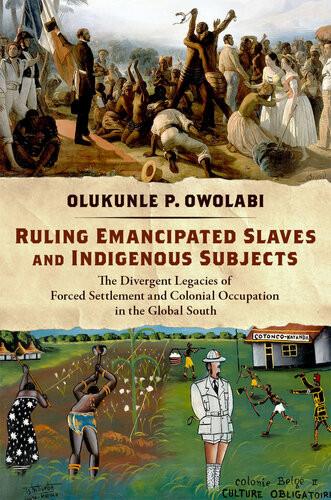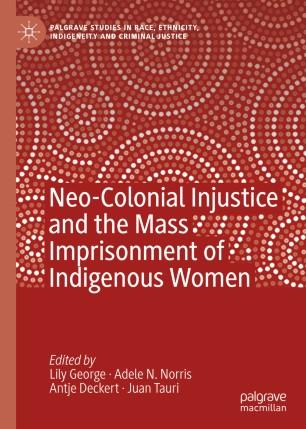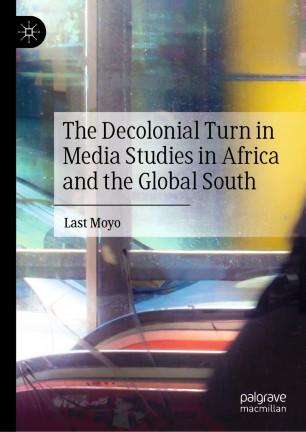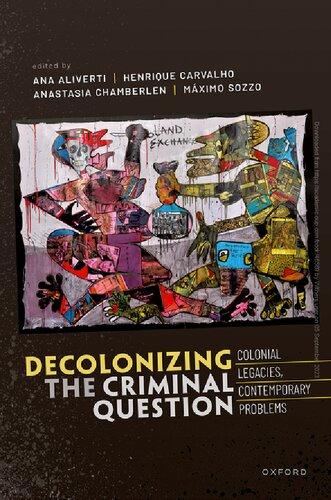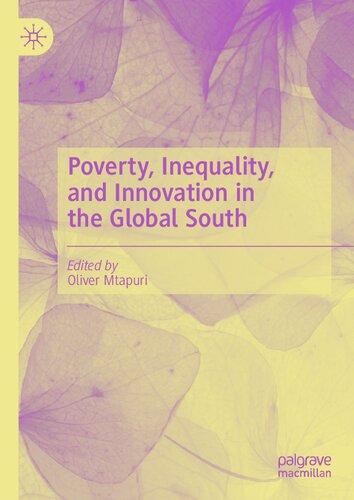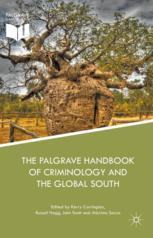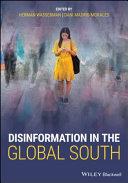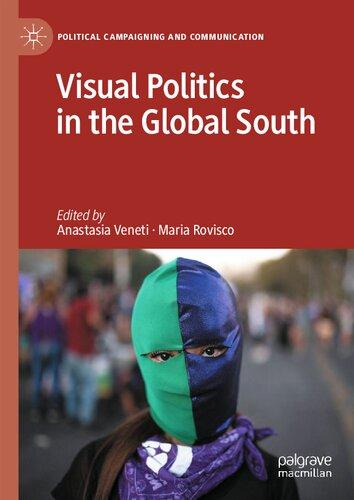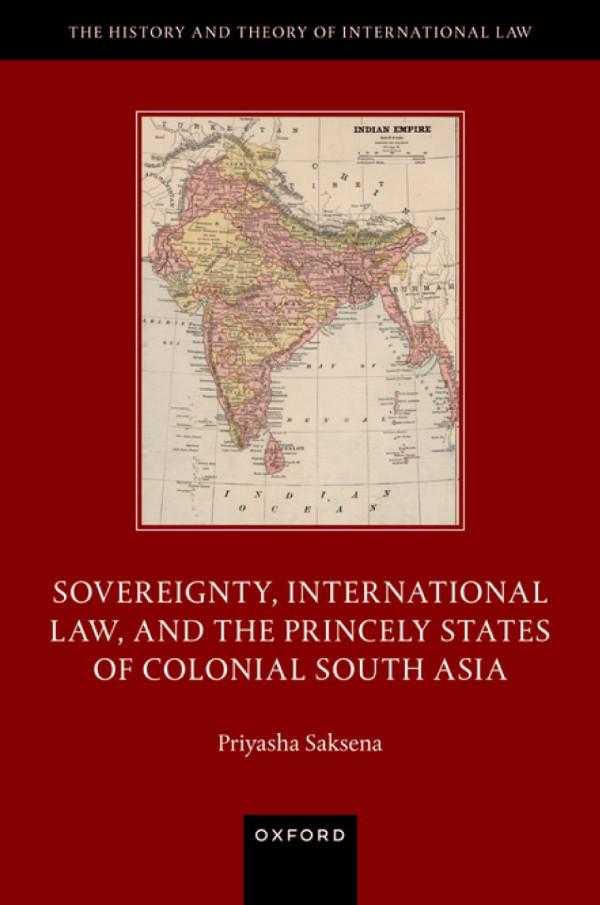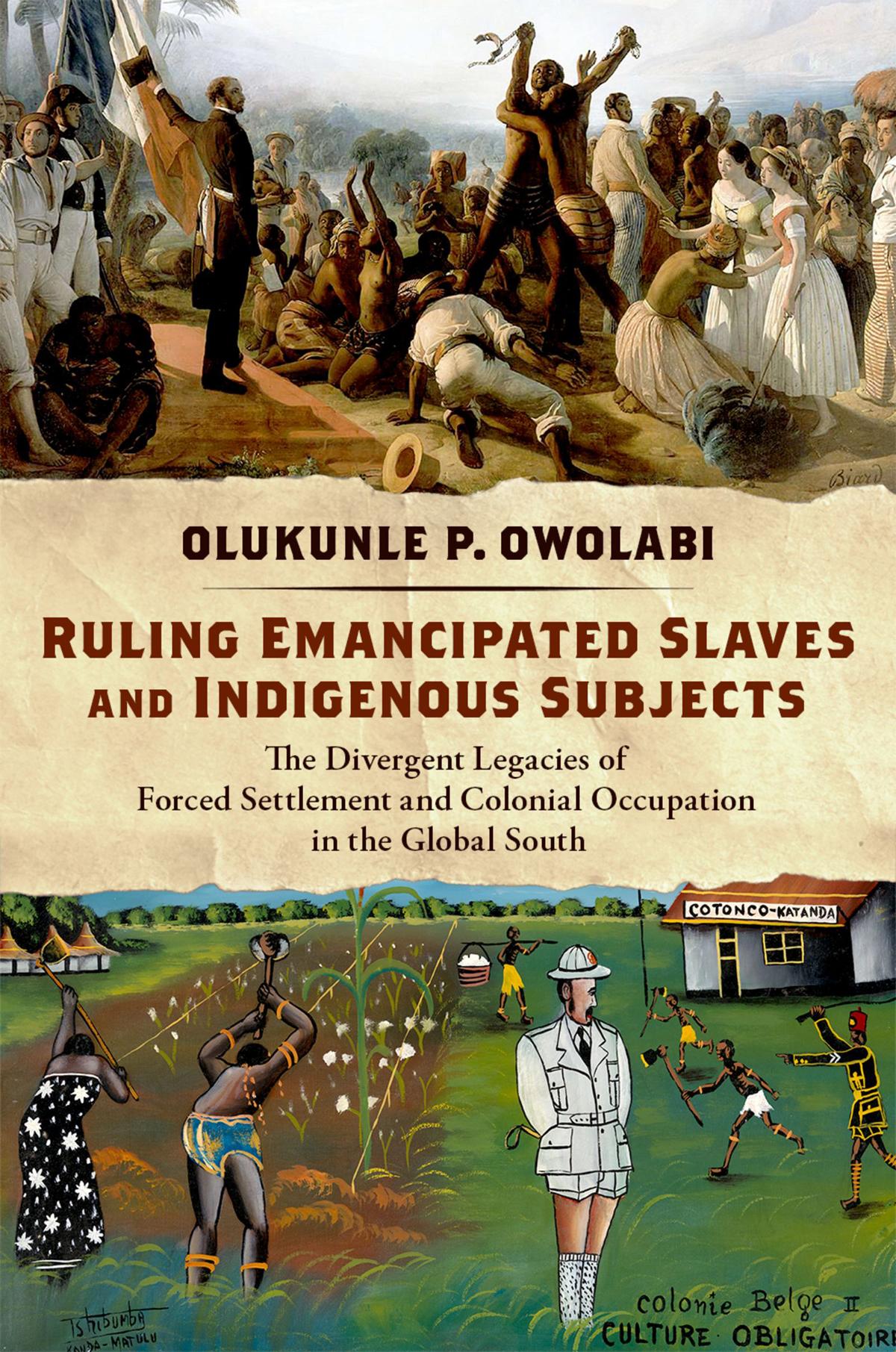Ruling Emancipated Slaves and Indigenous Subjects
The Divergent Legacies ofForcedSettlementand ColonialOccupation in the GlobalSouth
OLUKUNLE P. OWOLABI
Oxford University Press is a department of the University of Oxford. It furthers the University’s objective of excellence in research, scholarship, and education by publishing worldwide. Oxford is a registered trade mark of Oxford University Press in the UK and certain other countries.
Published in the United States of America by Oxford University Press 198 Madison Avenue, New York, NY 10016, United States of America.
© Oxford University Press 2023
All rights reserved. No part of this publication may be reproduced, stored in a retrieval system, or transmitted, in any form or by any means, without the prior permission in writing of Oxford University Press, or as expressly permitted by law, by license, or under terms agreed with the appropriate reproduction rights organization. Inquiries concerning reproduction outside the scope of the above should be sent to the Rights Department, Oxford University Press, at the address above.
You must not circulate this work in any other form and you must impose this same condition on any acquirer.
Library of Congress Cataloging-in-Publication Data
Names: Owolabi, Olukunle P. (Olukunle Patrick), author.
Title: Ruling emancipated slaves and indigenous subjects : the divergent legacies of forced settlement and colonial occupation in the global south / Olukunle P. Owolabi.
Description: New York, NY : Oxford University Press, [2023] | Includes bibliographical references and index.
Identifiers: LCCN 2022054523 (print) | LCCN 2022054524 (ebook) | ISBN 9780197673034 (paperback) | ISBN 9780197673027 (hardback) | ISBN 9780197673058 (epub)
Subjects: LCSH: Europe—Colonies—Administration. | Europe—Colonies—Social conditions. | Developing countries—Social conditions. | Postcolonialism—Developing countries. | Indigenous peoples—Developing countries—Social conditions. | Indigenous peoples—Legal status, laws, etc.—Developing countries. | Children of freed persons—Developing countries—Social conditions. | Children of freed persons—Legal status, laws, etc.—Developing countries. | Forced migration—Europe—Colonies—America. | Forced migration—Europe—Colonies—Africa.
Classification: LCC JV152 .O95 2023 (print) | LCC JV152 (ebook) | DDC 325/.341—dc23/eng/20230103
LC record available at https://lccn.loc.gov/2022054523
DOI: 10.1093/oso/9780197673027.001.0001
Tomyparents,TitusandPaulaOwolabi,whoworkedhard toprovidethebesteducationformysiblingsandI,andto showusthebestaspectsofourAfricanandCaribbean heritage.Eşeganni.Thankyouforyourenduringlove, wisdom,andsupport.Andtomywife,Catalina,whoselove andencouragementsustainedmethroughthisproject.Te amocontodomicorazón.
Contents
ListofIllustrations
Acknowledgments
ListofAbbreviations
1. Introduction: Forced Settlement, Colonial Occupation, and the Historical Roots of Divergent Development in the Global South
2. A Historical Overview of Forced Settlement and Colonial Occupation in the Global South
3. Historical Institutionalism, Critical Junctures, and the Divergent Legacies of Forced Settlement and Colonial Occupation
4. A Global Statistical Analysis of Forced Settlement and Colonial Occupation: Colonial Institutions and Postcolonial Development
5. Comparing British Forced Settlement and Colonial Occupation: Jamaica and Sierra Leone
6. Comparing Portuguese Forced Settlement and Colonial Occupation: Cape Verde and Guinea-Bissau
7. Forced Settlement and Colonial Occupation under French Rule: From Saint-Domingue (Haiti) and the French Antilles to Algeria and Sub-Saharan Africa
8. Conclusions, Reflections, and Avenues for Future Research
Appendix1:FormerColoniesinOLSDataModels
Appendix2:DataSourcesforKeyVariables
Appendix3:StatisticalResultsUsingAlternativeMeasuresof PostcolonialDemocracy
Appendix4:StatisticalModelsUsinganExpandedSampleof PostcolonialStatesandAlternativeMeasurementsofForced Settlement
Notes
References
Index
1.1.
1.2.
2.1.
3.1.
3.2.
5.1.
5.2. 6.1. 6.2.
6.1. 7.1. 7.2.
1.1.
Illustrations
Figures
The divergent development legacies of forced settlement and colonial occupation in the Global South
Mapping the argument: Divergent legacies of forced settlement and colonial occupation
Varieties of imperial control in the Global South
How liberal reforms promoted human well-being and postcolonial democratization in forced settlement colonies
How colonial occupation and bifurcated legal-administrative institutions undermined human well-being and postcolonial democratization
Primary school enrollment rates for Jamaica and Sierra Leone, 1870–1970
Liberal democracy in Jamaica and Sierra Leone
Postcolonial regime trends in Lusophone Africa, 1975–2012
Real per capita GDP growth in Lusophone Africa, 1976–2008
Maps
Cape Verde and the West African Coast
French Colonial Territories and Haiti, c. 1920
East African Coast, Comoros Islands, and Madagascar
Tables
The Divergent Development Legacies of Forced Settlement and Colonial Occupation as Indicated by HDI Scores in 2015
2.1.
Key Differences between Forced Settlement and Colonial Occupation
4.1.
4.2.
4.3.
4.4.
4.5.
4.6.
4.7.
4.8.
4.9.
5.1.
5.2.
5.3. 6.1.
7.1.
7.2.
7.3.
7.4.
Summary Statistics
Mean Developmental Outcome by Mode of Colonization
Education and Life Expectancy at the End of the Colonial Era
Economic Development during the Colonial Era
Human Well-Being in 2015
“Tutelary Democracy” under Colonial Rule
Postcolonial Democratization
Causal Mechanisms Linking Forced Settlement to Education and Voting Rights
Colonial Institutions, Colonial Education, and Postcolonial Democracy
The Expansion of Primary Schooling in Colonial Jamaica, 1834–1961
The Expansion of Primary Schooling in Colonial Sierra Leone, 1838–1956
Colonial Institutions and postcolonial development in Jamaica and Sierra Leone, with median outcomes for British Caribbean and African colonies
Colonial Institutions and Postcolonial Development in Portuguese Africa
Slavery, Institutional Reform, and Long-Term Development: Comparing Haiti to Other Forced Settlement Colonies
Slavery, Institutional Reform, and Long-Term Development: Haiti versus the French Antilles Colonies
Divergent Development after Abolition: Haiti versus the French Antilles
Colonial Citizenship and Postcolonial Development in Selected French Colonies
Acknowledgments
This book has been a labor of love that has consumed most of my intellectual energy for the past 15 years. The core ideas of this book were first outlined in graduate seminar papers supervised by Michael Coppedge and the late Guillermo O’Donnell, when I was a doctoral student at the University of Notre Dame. My dissertation research began as an exploration of the long-term consequences of British forced settlement and British colonial occupation for state-building and postcolonial democratization in the Global South. The project expanded into its current form after I encountered Matthew Lange’s influential research on the divergent developmental legacies of direct and indirect British rule. One of my dissertation committee members, Naunihal Singh, suggested that I take advantage of my area studies expertise and multilingual proficiency to examine the developmental legacies of forced settlement and colonial occupation across multiple colonial empires. I initially balked at the idea of tackling such a formidable project, but I was touched by the generous support of my professors, friends, and mentors at the University of the Notre Dame. I would like to thank my dissertation adviser, Michael Coppedge, and my committee members Scott Mainwaring, Robert Fishman, and Naunihal Singh, for their expert advice and tireless support during my long years of study at the University of Notre Dame. I would also like to thank Fr. Paulinus Odozor, Fr. Robert Dowd, Anibal Pérez-Liñan, Dianne Pinderhughes, Jaimie Bleck, Paul Ocobock, Guillermo Trejo, Andy Gould, Ted Beatty, Jim McAdams, Frances Hagopian, Carlos Gervasoni, and Michael Driessen for their mentorship and friendship during my PhD years and afterward. I could not have asked for a more supportive group of intellectual mentors, and I am eternally grateful for your encouragement,
friendship, and critical feedback that sustained and nourished me throughout this project.
One of the joys of writing this book was the significant archival and library research that has enriched the comparative-historical evidence in the latter chapters. Consequently, I would like to thank the various funding agencies and research institutes that enabled me to conduct library and archival research in the United Kingdom, France, Portugal, Senegal, and Cape Verde. My PhD research was partially funded by a generous doctoral fellowship from the Social Sciences and Humanities Research Council of Canada. The University of Notre Dame’s Kellogg Institute for International Studies provided a seed money grant for my first research trip to the British Library and the UK National Archives in the summer of 2007. The Kellogg Institute also provided a dissertation fellowship that funded library and archival research in London and Lisbon in the Fall Semesters of 2008 and 2009. A summer research grant from Notre Dame’s Nanovic Institute for European Studies funded my first research trips to the Bibliothèque Nationale de France (Paris) and the French colonial archives in Aix-en-Provence in the summer of 2009. I also benefited from generous research funding from Villanova University, where I expanded my research as an assistant professor. I am very grateful for the faculty development grant that supported additional archival and library research in London, Paris, and Aix-en-Provence during the summer of 2013. Villanova University also provided a Research Support Grant that funded my research trips to London, Paris, Senegal, and Cape Verde in the Summer and Fall Semesters of 2015. I also received a generous Subvention of Publication grant from Villanova University that covered the copyright costs for the book’s cover art and other incidental publication expenses. This book would never have been completed without the generous financial and research support that I have received from various sources over the years.
Completing an academic book of this scope can be a lonely endeavor filled with moments of extreme anxiety, self-doubt, and even self-hate. I’ve had more than my share of these moments over the years, so I am extremely grateful for all the words of
encouragement and support that I have received from fellow academics along the way. I would like to thank everyone who offered encouraging words or critical feedback on work that I presented at academic workshops and conferences in the United States, Canada, Spain, and the United Kingdom. Over the years, I have received incredible feedback, both generous and critical, from leading scholars of colonialism and development, including Matthew Lange, James Mahoney, Mahmood Mamdani, Robert Woodberry, Adria Lawrence, Maya Tudor, David Laitin, and Jack Paine. Each of you has inspired me, and at times challenged me, to refine my core concepts, sharpen my arguments, deepen my statistical analyses, and consider alternative theoretical frameworks that have enriched the scope and rigor of my work. John Darwin, Laurence Whitehead, Nancy Bermeo, and Alexandra Scacco provided critical feedback at Nuffield College, Oxford, where I presented earlier drafts of my research in 2009. Matthew Lange encouraged me to push beyond the confines of democratization literature, and to think more broadly about other aspects of development that are shaped by colonial legacies. Robert Woodberry encouraged me to think more critically about the developmental legacies of Protestant missionary evangelization in colonial and postcolonial states. He also nominated one of my earlier working papers for the American Political Science Association’s “Best Paper” award in Comparative Democratization in 2012. I would also like to thank the anonymous reviewers that provided critical feedback that facilitated the publication of my earlier work in Comparative Politics and the Kellogg Institute for International Studies’ Working Paper series. The data analysis in Chapter 4 and the data appendices expand my research from an earlier paper, “Literacy and Democracy Despite Slavery,” that was published in ComparativePoliticsin 2015.
Many kind and generous librarians, archivists, and fellow academics helped me to locate important primary documents and secondary literature during my research trips to the UK, France, Portugal, Senegal, and Cape Verde. Mandy Banton was particularly helpful in helping me to find, locate, and navigate the rich collection of historical records at the UK National Archives. I also received
advice and support from my former professors and mentors at Oxford University, including Alan Knight, Laurence Whitehead, and the late Abdul Raufu Mustapha. I would also like to thank Tiago Fernandes, Gerhart Seibert, and Antonio Costa Pinto for their advice and insights on Portugal colonialism during my research trips to Lisbon in 2009. Rita Almeida de Carvalho, Pedro Tavares de Almeida, and Isabel Gomes helped me to locate little-known historical records from the colonial elections to the Portuguese National Assembly between 1911 and 1973. These records have significantly enriched the historical evidence in Chapter 6, which highlights the more inclusive nature of colonial citizenship in Cape Verde relative to other Portuguese African colonies. I am also eternally grateful to friendly and professional staff who provided access to electoral data and census records at the National Historical Archives of Cape Verde.
Closer to home, I am very grateful for the support of my faculty colleagues who patiently supported and encouraged the completion of this work at Villanova University. I am especially grateful to the three graduate research assistants that supported me during the seven long years that it took for me to write, edit, and revise three drafts of this book. Thank you, Willis Orlando, Jillian Andres, and Lirona Joshi, for your research support, encouragement, and friendship during these years. I also received generous feedback and encouragement from the graduate students in my seminar course on Colonialism, Institutions, and Development. Teaching and mentoring graduate and undergraduate students has been the most rewarding aspect of my academic career, and I am very grateful for the friendship, encouragement, and critical feedback that I have received from current and former students over the years. I also want to acknowledge the Villanova faculty colleagues, friends, and mentors that have supported and encouraged me over the years. Special thanks to Maghan Keita, Chiji Akoma, Theo Arapis, Eric Lomazoff, David Barrett, Camille Burge, Catherine Warrick, Jennifer Dixon, Cera Murtagh, Mark Schrad, Christine Palus, and Mike and Anna Moreland for your friendship, advice, and support. If I have forgotten to mention any Villanova colleagues here, thank you for your kind words, your support, and your encouragement.
I would also like to thank Jack Paine and Matthew Lange for their extensive feedback on two earlier drafts of my book manuscript. Both reviewers encouraged me to expand my chapter on French colonial legacies, and Matthew Lange encouraged me to push beyond the “usual suspects” to include some little-known cases like the Comoros Islands. Matthew Lange also encouraged me to write about the legacies of mixed plantation colonization for Afrodescendants in Brazil, Cuba, and the southern United States. His extensive feedback contributed to significant improvements in the third draft of my manuscript, which was submitted to Oxford University Press in 2021. I would like to thank David McBride, and the entire team at Oxford University Press, for your support, encouragement, and professionalism. I was pleasantly surprised by the smoothness of OUP’s review process, and I would like to thank the third anonymous reviewer whose generous feedback complimented the earlier reviews of my book manuscript. It has been a joy to work with OUP, and I will be eternally grateful to David McBride for taking a chance on a little-known emerging scholar from an R2 university.
I would also like to thank all the family and friends across the globe whose love, friendship, encouragement, and support sustained me during the lengthy process of researching, writing, and editing this book. I would like to thank Auntie Bose and Uncle Tunde, Auntie Bisi, Gbenga and Yewande Falowo, Luciano Ciravegna, and Sara Roberts, whose friendship, laughter, and hospitality sustained and nourished me during my research trips to London. Thank you, HenriMichel Yéré and Rachel Kantrowitz, for the lifelong friendships that developed from our research at the French colonial archives. Special thanks to Father Paulinus Odozor, Fabian and Francesca Udoh, Daniele Puccinelli, Carlos Gervasoni, Michael Driessen, Luca and Jen Cottini, Daniel and Suur Ayangeakaa, Ibrahim Garba, Annie RashidiMulumba, Lakwame Anyane-Yeboa, Jonathan Richardson, and Kate Schuenke and Fredo Lucien for the lifelong friendships that began during our shared time at the University of Notre Dame. I also owe an enormous debt of gratitude to the celebrated Cape Verdean singer, Tété Alhino, and her husband, Enrique Aguirre, for hosting
me during my 2015 research trip to Cape Verde. I enjoyed meeting your entire family, and I will never forget the enriching conversations, food, music, and laughter that we shared over breakfast and lunch, with Enrique, Diego, and Sara. All of you brought joy, laughter, music, great food, and unforgettable memories into my life when I needed them most.
Last, and most importantly, I would like to thank my parents, Paula and Titus Owolabi; my brother, Kola; my sister, Kemi; my brother-in-law, Lance; my nephew and niece, Mateo and Shiloh; my aunt and uncle, Erica Mapp and Alan Bass; my cousin Chloe Bass and her new husband, James McAnally; my best friend Adrian Brathwaite (and the entire Brathwaite clan); my extended family in Trinidad, London, and Nigeria; my lifelong family friends Ibukun, Jola, and Femi Omole; and my wife Catalina and her entire family in Colombia, Spain, and Canada. My wife Catalina also played an indispensable role in designing and formatting the figures and flowcharts that appear in this book. I am very blessed to have such a loving, supportive, and immensely talented wife, whose strengths make up for my weaknesses. To Catalina, muchísimas gracias por todo tu amor y apoyo! To my parents, siblings, in-laws, and extended family in Toronto, New York, South Bend (Indiana), London, Nigeria, Trinidad, and Colombia, I am eternally grateful for your love, laughter, and unconditional support, laughter, and emotional support. Thank you, also for your generous hospitality, music, and nourishing food that have kept me close to my African, Caribbean, and Hispanic cultural heritage. I could not have completed this book without your encouragement and words of wisdom that have sustained me and kept me grounded during the ups and downs of academic research, writing, and publishing. Thank you for everything! Eşeganni!
Abbreviations
ANC African National Congress (South Africa)
APC All People’s Congress (Sierra Leone)
CMS Christian Missionary Society
CODESRIA Council for the Development of Social Science Research in Africa
DC District Commissioner (Sierra Leone)
DOM French Overseas Departments / Départements d’Outre-Mer
FF French Francs
FHIP Freedom House Imputed Polity Scores
FLN National Liberation Front (Algeria) / Front de Libération Nationale
GDP Gross Domestic Product
HDI Human Development Index (United Nations)
JHA Jamaica House of Assembly
JLP Jamaica Labour Party
MDRM Democratic Movement for Malagasy Restoration (Madagascar) / Mouvement Démocratique de la Rénovation Malgache
MpD Movement for Democracy (Cape Verde) / Movimento para a Democracia
MPLA People’s Movement for the Liberation of Angola / Movimento Popular de Libertação de Angola
NA Native Authorities (Sierra Leone)
NCSL National Council of Sierra Leone
PAICV African Party for the Independence of Cape Verde / Partido Africano para a Independência do Cabo Verde
PAIGC African Party for the Independence of Guinea-Bissau and Cape Verde / Partido Africano para a Independência da Guiné e Cabo Verde
PNM People’s National Movement (Trinidad and Tobago)
PNP People’s National Party (Jamaica)
PT Workers’ Party (Brazil) / Partido dos Trabalhadores
RUF Revolutionary United Front (Sierra Leone)
SLPP Sierra Leone People’s Party
TOM French Overseas Territories / Territoires d’Outre-Mer
UNC United National Congress (Trinidad and Tobago)
UNECA United Nations Economic Commission for Africa
V-DEM Varieties of Democracy
VIF Variance Inflation Factors
1 Introduction
Forced Settlement, Colonial Occupation, and the Historical Roots of Divergent Development in the
Global South
There was a lively and celebratory atmosphere in Port-of-Spain, Trinidad, on August 31, 2012, when the twin-island Caribbean republic celebrated its fiftieth year of independence from British rule. The independence jubilee began with the festive calypso music and rhythms of the national police band and members of the Trinidad and Tobago Defense Forces marching through the crowded streets of the capital city. Trinidad and Tobago’s golden jubilee celebration was not only pageantry and festive calypso music: it was also a celebration of the political and development achievements that distinguished the twin-island Caribbean nation from the majority of developing countries that emerged from Western colonial domination after World War II. Prime Minister Kamla Persad-Bissessar publicly acknowledged her country’s “steadfast . . . commitment to . . . democracy, . . . the rule of law, and . . . the belief that all men and women are created equal and endowed with inalienable rights,” as she addressed the attendees in Queen’s Park Savannah (Caribbean Journal 2012). The prime minister also paid homage to the country’s independence leaders, who enshrined a political culture of respect and social tolerance that sustained more than five decades of effective democratic governance in a country with significant racial, ethnic, and religious diversity. These are remarkable
accomplishments for a country that emerged from an exploitative colonial system that lasted more than four centuries.
The Republic of Trinidad and Tobago is the southernmost nation in the Caribbean, and it consists of two islands where European colonists established sugar plantations with imported African slaves and South Asian indentured laborers. Virtually the entire population of the smaller island, Tobago, are descendants of enslaved Africans who were brought to the island by English, French, and Dutch colonists during the seventeenth and eighteenth centuries.1 Trinidad’s colonial development was somewhat less dependent on imported slave labor, but the island’s French Creole planters imported 150,000 South Asian indentured laborers to maintain their agricultural plantations following the abolition of slavery in the 1830s (Engerman 2012, 598). Despite this brutal history of coercive labor migration and labor-repressive plantation agriculture, Trinidad and Tobago is one of the most successful developing countries that gained independence after World War II. Today, the twin-island republic boasts a highly educated, multiethnic population that supports a dynamic energy-based economy and a thriving financial sector with close ties to the United States, Latin America, and other Caribbean markets. The islands’ diverse population enjoys one of the highest living standards in the developing world, as the country’s oil and gas reserves are effectively managed in ways that promote economic growth and human well-being.2 The country has also experienced several decades of robust parliamentary democracy with regular electoral alternation between competing political parties that represent and mobilize voters from the country’s largest ethnic groups.3
The Caribbean island of Barbados provides another example of inclusive human development and effective democratic governance in a postcolonial state with a brutal history of forced settlement. Between 1660 and 1810, Barbados’ English colonists transported more than half a million enslaved Africans to work, and often die, on the island’s sugar plantations. Barbados’ surface area is tiny—less than one-tenth the size of Trinidad and smaller than US cities like
Houston, New York, or Chicago. Nevertheless, Barbados’ English colonists imported more enslaved Africans than the total number of slave shipments to the entire United States during a much longer historical period (Eltis and Richardson 2010, 18).4 Enslaved African laborers suffered untold abuses on Barbados’ colonial plantations in the colony: demographic data suggest that most died from disease, overwork, torture, starvation, or suicide within a few short years of their arrival. The living conditions for enslaved Africans in Barbados were so appalling that the island’s entire population barely exceeded 100,000 inhabitants when slavery was abolished in the 1830s (Engerman and Higman 1997, 50). Given Barbados’ brutal history of forced settlement and plantation slavery, one could reasonably expect to find the kind of impoverishment and underdevelopment that persists in Haiti or in many parts of sub-Saharan Africa. Instead, Barbados also boasts a strong record of human development, outperforming nearby Trinidad and Tobago on key indicators of human well-being, including educational attainment and life expectancy at birth (United Nations Development Program 2016). Barbados also boasts a thriving parliamentary democracy that has generated seven decades of electoral alternation between competing political parties. Today, Freedom House, a US-based political agency, recognizes Barbados as one of the “freest” countries on the planet.5
Directly across the Atlantic from the Eastern Caribbean, the littleknown Cape Verdean islands provide another striking example of postcolonial development and democratization in an archipelago nation that was colonized with imported slave labor. These “Creole” African islands were uninhabited when the first Portuguese colonists arrived in the 1460s and populated the region with African slaves from the nearby Guinea Coast. These were the first islands where European colonists established agricultural plantations with enslaved African labor prior to Christopher Columbus’ first voyage to the New World in 1492. Nevertheless, the expansion of agricultural plantations in tropical regions of the New World generated an unprecedented demand for enslaved African labor after 1600, and the Cape Verdean islands became an important supply and refueling
station for slave ships crossing the Atlantic. Slavery was ultimately abolished in the Cape Verdean islands after 1869, when Portuguese imperialists shifted their attention toward consolidating their political control over indigenous Africans on the mainland. Thereafter, the Cape Verdean islands became a forgotten colonial outpost in the Atlantic Ocean: Portuguese administrative neglect and poor resource management generated a devastating cycle of famines that claimed more than 80,000 Cape Verdean lives between 1860 and 1950. The physical and economic devastation of the Cape Verdean islands compelled tens of thousands of Cape Verdeans to “volunteer” for indentured plantation labor in other Portuguese African colonies during the first half of the twentieth century. Upon gaining independence in 1975, Cape Verde was the second poorest country in Africa, and its government was controlled by a Marxist liberation party that established authoritarian political control and restricted electoral competition. Despite these inauspicious beginnings, the country has experienced several decades of sustained economic growth that generated significant improvements in education, health, and poverty reduction after independence. These improvements in human well-being generated popular demands for democracy, and Cape Verde was one of the first African countries to introduce multiparty elections and consolidate democracy after 1990. By the early 2000s, the Creole archipelago nation was widely regarded as “the most democratic country in Africa” (Baker 2006).
In contrast to the successful record of postcolonial development and democratic consolidation in Cape Verde, Barbados, and Trinidad and Tobago, some of the poorest and most underdeveloped countries on the planet are located at similar tropical latitudes, along the “Guinea Coast” of West Africa. This coastline stretches from Senegal’s Cassamance region to present-day Sierra Leone and Liberia, directly adjacent to the nearby Cape Verdean islands. European explorers first arrived in this region during the 1460s, when Portuguese colonists settled the nearby Cape Verdean islands with enslaved Africans whom they kidnapped from the Guinea Coast. The entire coastline and adjacent interior hinterlands were dramatically transformed by the transatlantic slave trade, which
transported more than 12 million enslaved Africans to the New World between 1500 and 1860. Following the abolition of slavery in the New World, the Guinea Coast of West Africa was carved up into British, French, and Portuguese colonies that controlled their indigenous African subjects with significant labor coercion and political repression.
Many of these countries maintained repressive forms of political control following their independence from colonial rule. For example, the independence leader of the Republic of Guinea, Ahmed Sekou Touré, established a repressive dictatorship that endured for 26 years after his country’s independence from French rule in 1958. Neighboring Sierra Leone experienced three successive military coups within its first decade of independence from British rule in 1961. These military coups ushered in a brutal single-party dictatorship that plundered the country’s mineral wealth and devastated its economy during the 1970s and 1980s. The impoverished West African nation was later plunged into a devastating civil war that claimed more than 50,000 lives during the 1990s. Further north, Guinea-Bissau’s hard-won independence from Portugal followed a brutal anticolonial war that lasted from 1963 until 1974. Thousands of Cape Verdeans participated in GuineaBissau’s independence war, and the two countries were initially governed by the same political party. Nevertheless, Guinea-Bissau has been devastated by significant regime instability and persistent underdevelopment after gaining independence from Portugal. Its independence government was toppled in a military coup in 1980, and the country experienced two decades of predatory authoritarian rule that culminated in a civil war that ended with foreign military intervention by French and African Union troops.
The persistent underdevelopment of impoverished West African states like Sierra Leone, Guinea, and Guinea-Bissau provides a stark contrast to the comparatively successful Caribbean islands like Barbados and Trinidad and Tobago and Creole African islands where European colonists established agricultural plantations with imported African slaves. The diverse developmental trajectories of postcolonial states in the black Atlantic world exposes an important empirical
puzzle that has not been sufficiently examined in existing empirical studies on the developmental legacies of colonialism. The dominant assumption from existing literature is that coercive labor practices and extractive economic institutions hindered the long-term development and postcolonial democratization of colonial states with limited European settlement (see Sokoloff and Engerman 2000; Acemoglu, Johnson, and Robinson 2001, 2002; Acemoglu and Robinson 2012). Many existing studies also demonstrate favorable developmental outcomes in former British colonies relative to French or Iberian colonies (La Porta et al. 1998, 1999; Grier 1997, 1999; Brown 2000; Lee and Paine 2019a). Nevertheless, these studies overlook an important conceptual distinction between forced settlement and colonial occupation as distinctive modes of imperial control in the Global South. This conceptual distinction is important because of the favorable developmental trajectories of forced settlement colonies, where European colonists established agricultural plantations with imported African slaves, relative to colonies of occupation, where Europeans exploited the labor and natural resources of indigenous colonial subjects. To a surprising degree that is obscured by existing studies, my research demonstrates more inclusive patterns of state-building and human development—specifically, educational attainment, life expectancy at birth, economic development, and postcolonial democratization—in forced settlement colonies relative to continental African states and other Global South countries that emerged from colonial occupation after World War II (see Owolabi 2010, 2014, 2015).
I first experienced the contrasting legacies of forced settlement and colonial occupation as the Canadian-born child of immigrant parents from Trinidad and Tobago and Nigeria. During the early 1980s, my father established a medical hospital in Nigeria with his childhood best friend, and our two families relocated from Toronto, Canada, to the provincial town of Ilesha, in southwestern Nigeria. The 1970s oil boom imploded shortly after our arrival in Nigeria, and the resulting economic crisis exacerbated ethnic, religious, and political tensions within the country. In fact, my first political memory was a military coup that ended Nigeria’s short-lived second episode
of democratic rule on December 31, 1983. These were challenging years to live in Nigeria: economic and social ills like malaria, electricity power cuts, water shortages, and widespread corruption were routine features of everyday life, even for relatively privileged families with professional middle-class jobs. These developmental challenges were far less prevalent in Trinidad and Tobago, where we spent several weeks visiting my mother’s family in August 1985. Even as a seven-year-old child, it was clear to me that economic and social goods were more broadly distributed in Trinidad: the electricity was stable, the roads were paved, and there was no need to take antimalaria medication. These contrasting developmental trajectories of Trinidad and Nigeria are permanently etched in my memory because my family’s return to Nigeria was delayed by the sixth military coup in Nigeria’s history, on August 27, 1985. These childhood memories generated unanswered questions that motivated my graduate studies and subsequent research on the divergent legacies of forced settlement and colonial occupation in the black Atlantic world and across the Global South.
The Divergent Legacies of Forced Settlement and Colonial Occupation
My research introduces an important conceptual distinction between forced settlement and colonial occupation as distinct modes of imperial domination among Global South countries and territories that emerged from colonial rule after World War II.6 I define forced settlement as the pattern of imperial domination in which European colonists developed agricultural plantations in newly settled tropical regions using imported African slaves and/or Asian indentured labor (see Owolabi 2010, 2014, 2015). This pattern of colonization was established in Creole African islands like Cape Verde and Mauritius, and in tropical regions of the New World, where the descendants of emancipated slaves and Asian indentured laborers account for more than three-quarters of the population living in these territories today. These New World territories were intensively colonized after their
indigenous populations were decimated by imperial conquest, forced labor, and exposure to European diseases during the sixteenth century. Consequently, European colonists turned to continental Africa to provide enslaved labor for their sugar, coffee, and cocoa plantations. By the middle of the eighteenth century, enslaved Africans comprised more than 80% of the population in forced settlement colonies like Barbados, Jamaica, and Haiti. This far exceeded the proportion of enslaved Africans in mixed plantation colonies like Brazil,7 Cuba,8 or the mainland British colonies of North America,9 where enslaved Africans were outnumbered by local white settlers.
Most forced settlement colonies abolished plantation slavery during the nineteenth century, after the British Industrial Revolution and revolutionary violence in the United States, France, Haiti, and Latin America brought abolitionist governments to power in much of the Atlantic world. In response to these upheavals, the British and French parliaments enacted liberal reforms that abolished plantation slavery in British and French forced settlement colonies during the 1830s and 1840s, respectively. Nevertheless, many forced settlement colonies maintained their agricultural plantations by recruiting indentured laborers from the Indian subcontinent. This is why many forced settlement colonies have racially diverse Creole populations of mixed African, European, and South Asian ancestry. Although the political economy of forced settlement generated racialized class structure that persisted into the twentieth century, most forced settlement colonies gained independence with high levels of educational attainment, and they have generally experienced greater postcolonial democratization than postcolonial states with large indigenous populations that predate the onset of colonial rule.
In contrast to forced settlement colonies that established agricultural plantations with foreign nonwhite labor, colonial occupation refers to the more typical pattern of imperial domination in which Europeans exploited the labor and natural resources of indigenous nonwhite populations that predate the onset of colonial rule. Colonial occupation was carried out with minimal European
settlement, but the small number of colonists exploited the labor and natural resources of indigenous populations on the Indian subcontinent, continental Africa, and significant portions of the Arab world and Pacific Asia following the abolition of slavery in the New World. The rapacious territorial expansion of colonial occupation is best exemplified by the “Scramble for Africa” between 1880 and 1914, when European colonists expanded from their coastal African settlements and trading posts to control and dominate indigenous populations and territories of the vast African continent. Within a single generation, the entire African continent—apart from Ethiopia and Liberia—was carved up into colonial states that protected European geostrategic and commercial interests.
The political economy of colonial occupation involved significant resource extraction and the exploitation of indigenous African labor. Colonial African states implemented coercive labor recruitment and punitive taxation policies that forced millions of indigenous Africans to work for foreign-owned plantations and commercial mines. There is an extensive body of literature on coercive labor practices and extractive economic institutions in colonial Africa (Young 1994; Ibekwe 1975; Rodney 1981; Ferreira 1974; Acemoglu and Robinson 2010), and the bifurcated legal-administrative frameworks that privileged colonial settlers over indigenous African “subjects” (Mamdani 1996). Scholars have also emphasized the devastating developmental and political consequences of arbitrary borders that divided African ethnicities into illegitimate colonial states (Englebert 2000a; Herbst 2000; Davidson 1992), and the “divide and rule” policies that the privileged certain ethnic and/or religious communities at the expense of others (Mamdani 2002, 2012; Lange and Dawson 2009; Lange 2012; King 2014; Posner 2003, 2004, 2005). These policies have generated ethnic and political grievances with devastating consequences for postcolonial democratization and human well-being in much of continental Africa. These practices may have been more rapacious in sub-Saharan Africa than in other developing regions, but many Asian countries and much of the Arab world also emerged from colonial occupation with poor
developmental outcomes that undermined postcolonial democratization efforts.
My research investigates the historical and institutional factors that enabled many forced settlement colonies to advance human well-being and democracy following the abolition of slavery. This trend is clearly evident in Figure 1.1, which demonstrates higher levels of educational attainment and greater postcolonial democratization in forced settlement colonies relative to Global South countries that emerged from colonial occupation after 1945.10 The scatterplot uses 1960 adult literacy rates to measure educational attainment during the late colonial era, whereas Freedom House Imputed Polity scores assess the extent of postcolonial democratization between 1972 and 2012.11 Most forced settlement colonies are concentrated in the upper-right corner of Figure 1.1, indicating high adult literacy rates in 1960 and high democracy scores after independence. At first glance, one might assume that British legal and political institutions facilitated favorable development in forced settlement colonies like Barbados (BRB), Jamaica (JAM), Mauritius (MUS), and Trinidad and Tobago (TTO), but British colonial occupation is associated with poor developmental outcomes in postcolonial states like Sierra Leone (SLE), Uganda (UGA), Nigeria (NGA), and Pakistan (PAK). Indeed, nearly all colonies of occupation, regardless of the colonizing power, are concentrated in the lower left quadrant of Figure 1.1, indicating low adult literacy rates in 1960 and limited postcolonial democratization.12
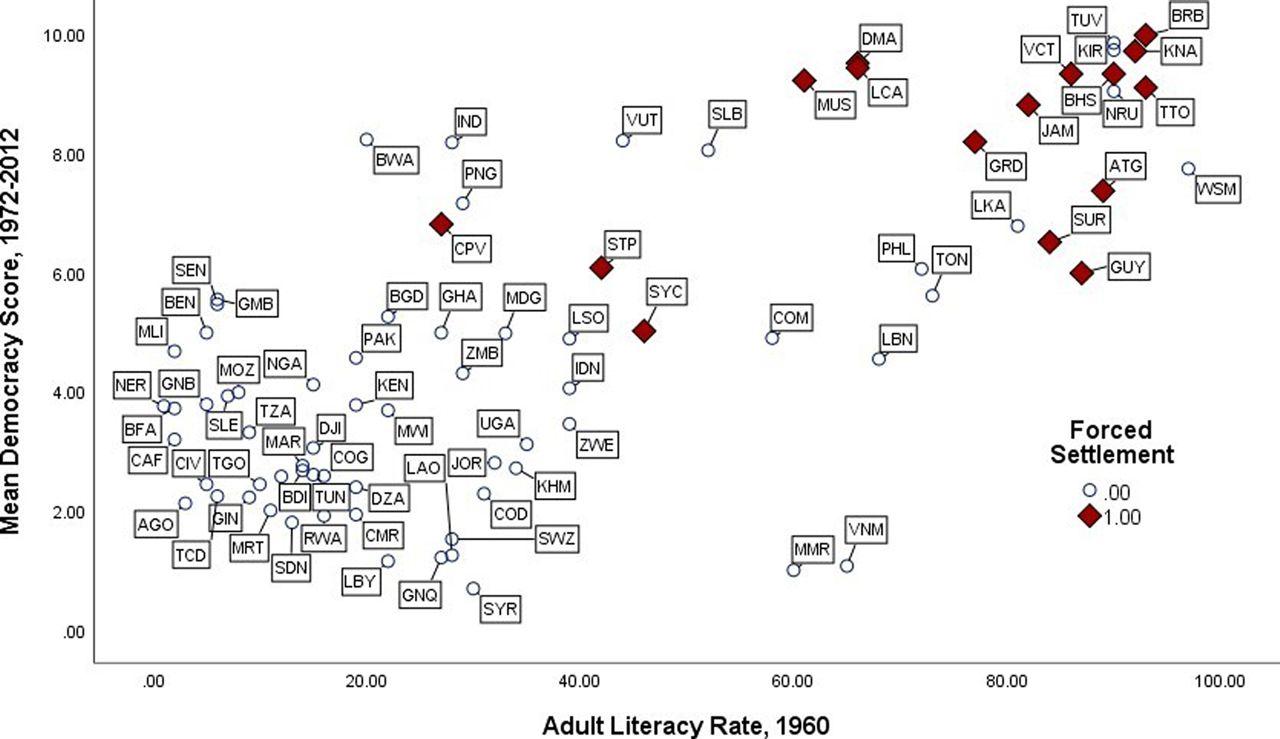
Figure 1.1 The divergent development legacies of forced settlement and colonial occupation in the Global South: Colonial education and postcolonial democracy
The favorable developmental legacies of forced settlement relative to colonial occupation are still evident today. Table 1.1 provides Human Development Index (HDI) scores to evaluate human well-being in postcolonial states in 2015. The United Nations’ HDI provides an aggregate measure of human well-being encompassing educational attainment, life expectancy at birth, and per capita income, with higher scores indicating favorable development outcomes. The data in Table 1.1 reveal high or very high HDI scores in most countries or territories that experienced forced settlement colonization.13 Moreover, the favorable developmental legacies of forced settlement relative to colonial occupation are not unique to the British colonial empire: The Netherlands Antilles (i.e., Aruba, Bonaire, and Curação) and the French Antilles (i.e., Guadeloupe, Martinique, and Réunion) boast higher HDI scores than British forced settlement colonies like Barbados, Mauritius, or Trinidad and Tobago.14 By contrast, most Global South countries that experienced British, French, or Iberian
colonial occupation had low, or at best intermediate, HDI scores. It seems entirely plausible that the larger size and diverse population of continental states like Nigeria, Sudan, India, and Vietnam may have hindered their long-term development relative to Caribbean microstates and Creole African islands that were colonized by forced settlement. Nevertheless, the correlation between small island states and favorable development is neither straightforward nor simple. The geographic isolation of island microstates enabled Europeans to control and repress enslaved plantation laborers in forced settlement colonies for more than two centuries. Yet despite the brutality of plantation slavery, most forced settlement colonies show favorable development outcomes relative to Pacific island microstates, as well as continental African, Asian, and Arab states that experienced colonial occupation.15
Table 1.1 The Divergent Development Legacies of Forced Settlement and Colonial Occupation as Indicated by HDI Scores in 2015
HDI Score, 2015 Forced Settlement
Very High
≥ 0.800
High 0.700 to 0.799
Guadeloupe 0.842, Martinique 0.859, Reunion 0.822, Netherlands Antilles 0.860
Antigua and Barbuda 0.783, Bahamas 0.790, Barbados 0.785, Dominica 0.724, Grenada 0.750, Jamaica 0.719, Mauritius 0.777, Seychelles 0.772, Saint Kitts and Nevis 0.752, St. Lucia 0.729, St. Vincent and the Grenadines 0.720, Suriname 0.714, Trinidad and Tobago 0.772
Colonial Occupation
Intermediate (0.550 to 0.699)
Cape Verde 0.646, Guyana 0.642, São Tomé and Príncipe 0.555
Algeria 0.736, Jordan 0.748, Lebanon 0.769, Libya 0.724, Samoa
0.702, Sri Lanka 0.757, Tonga 0.717, Tunisia 0.721
Low (less than 0.550)
Botswana 0.698, Cambodia 0.555, Congo, Rep. 0.591, Equatorial Guinea
0.587, Gabon 0.678, Ghana 0.570, India
0.609, Indonesia 0.684, Kenya
0.548, Kiribati 0.590, Laos 0.579, Morocco
0.628, Nauru 0.652, Philippines 0.668, Swaziland 0.561, Syria
0.594, Tuvalu 0.590, Vanuatu
0.594, Vietnam 0.666, Zambia 0.586
Angola 0.532, Bangladesh 0.57, Benin
0.480, Burkina Faso
0.402, Burundi 0.400, Cameroon 0.512, Central African Republic
0.350, Chad
0.392, Comoros 0.503,
